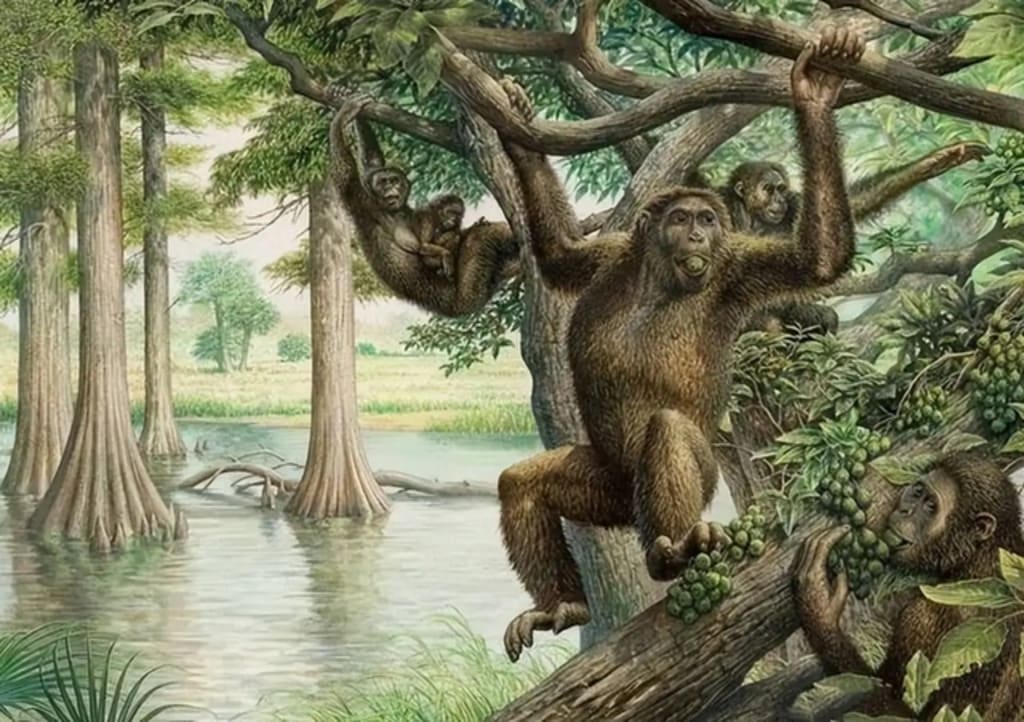How did mankind come to be? Understanding human origins in one breath
How did humans really come to be

How did mankind come to be? I believe that different people have different ideas, different disciplines have given answers, and different ancient civilizations have their myths. This time let's talk about how paleoanthropology, which specializes in this issue, really sees this question.
This modern taxonomy says that here lies the information about biological evolution and human origins. Modern humans belong to the phylum Chordata - Mammalia - Order Primates - Family Hominidae - Genus Homo = Homo species. So the question arises when did Mammalia rise to prominence?
It starts 65 million years ago, just after hundreds of thousands of years of volcanic activity, when an asteroid with a diameter of 10 km hit the Earth. The result was the extinction of non-avian dinosaurs.
After their extinction, mammals began to rise to the forefront of history. Among the mammals, one group gradually evolved into the primates. Later, the primates branched out, and one of them gradually evolved into the human family. Eight million years ago, the common ancestors of the ape and human genera in the family Hominidae began to gradually go their separate ways, with one of them being the common ancestor of both apes and humans. They also began to gradually diverge about 4 million years ago, and the first species of the genus Homo appeared in Africa about 2 million years ago, and it was able-bodied.
So now the question arises, what is considered "human"?
The definition of man has always been controversial. The definition in paleoanthropology has about three levels of meaning, respectively: brain capacity greater than 650 ml, habitual upright walking, and good at using tools. Neng Man happens to meet these three points, which is why he is considered to be the first species of the human genus.
After the Neng Ren, there appeared the artisans, and they have been able to use "fire". Almost at the same time as Homo sapiens, Homo erectus emerged, with a larger brain capacity, and at the same time, they spread out of Africa and into Eurasia. The familiar Peking Man and Lantian Man belong to Homo erectus.
After the emergence of Homo erectus, Heidelbergers emerged, including European Heidelbergers and African Heidelbergers. The European Heidelbergers gradually evolved into Neanderthals, while the African Heidelbergers gradually evolved into Homo sapiens. Homo sapiens, whose home base was in Africa at the time, once wanted to get out of Africa, just like Homo erectus. But unfortunately, the first time out of Africa and Neanderthals had a hard time. Neanderthal brain capacity and modern human close, but also very strong. So, the first time out of Africa, Homo sapiens failed.
Later, the second time out of Africa, it also happened to meet Neanderthal, but this time Homo sapiens is better. The Neanderthals eventually became extinct 30,000 years ago. Homo sapiens, on the other hand, has been the world's most dominant force since it overcame the Neanderthal mountain. Eventually, 12,000 years ago, with the extinction of the last human species other than Homo sapiens, "Homo floresiensis", only Homo sapiens remained on the earth, and they were spread all over the globe, and are our modern ancestors.
Later, Homo sapiens gradually developed agriculture, writing, city-states, bronze, and civilization was born. And then the story, we have heard from time to time, the global emergence of many ancient civilizations, the most typical is that we often say the four civilizations, in addition to the sea civilization Greece and so on. And the next is the history of the countries we know.
And on the issue of "human origins", we will say here.
About the Creator
Enjoyed the story? Support the Creator.
Subscribe for free to receive all their stories in your feed. You could also pledge your support or give them a one-off tip, letting them know you appreciate their work.






Comments
There are no comments for this story
Be the first to respond and start the conversation.